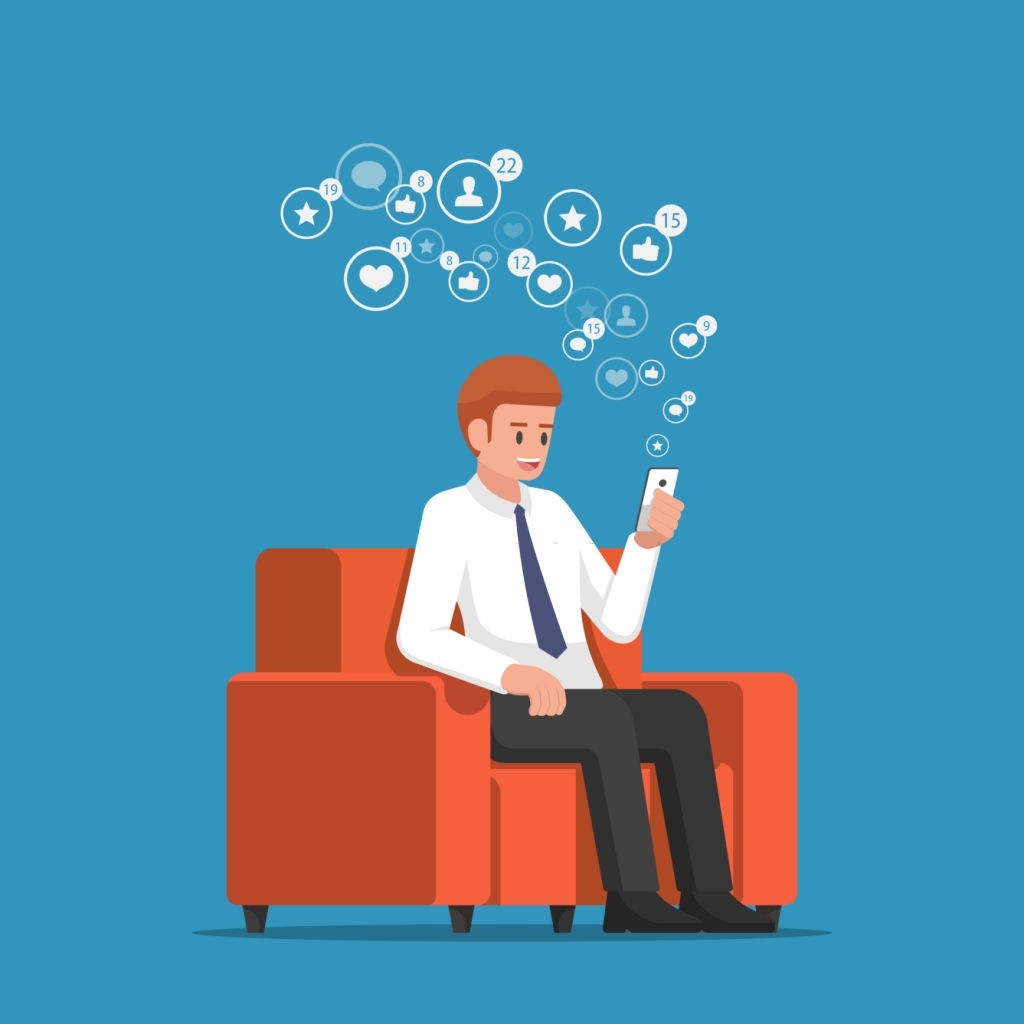Share This Article
Unfortunately, there’s no way of avoiding social media today unless you live in a cave with no Wi-Fi, no 4G and frankly, no computer or smartphone. Practically everyone in the world uses a form of social media and it’s useful too, for so many different reasons. Having a social media account is great for connecting with friends who are far away, with family that you don’t see very often, with old work colleagues to stay in touch and follow their journey. It’s also essential for businesses and every single business should use at least one form of social media to keep their business high in mind.
The Downside of Social Media and Mental Health
However, while social media has a multitude of benefits, there’s also a big downside and that’s social media and mental health. Over the years, there’ve been thousands of cases (reported – that doesn’t cover the unreported cases) of online bullying, trolling, stalking and more. Plus there are plenty of unpalatable accounts pushing self-harm, anorexia, bulimia, terrorism and more. So it’s no surprise that for many, social media and mental health is very connected. As well as the unpleasant online information, for lots of people, having that “recognition” on social media is so important.
What is Recognition on Social Media?

You might wonder what we mean at 1394ta? We’re talking about Instagram likes, Instagram views buy them from us, Instagram followers, Facebook friends, Twitter followers, Snapchat followers, TikTok followers etc. It’s not just teenagers or preteens that feel affected if they don’t get the Instagram love from their followers or a friend request is ignored. It’s adults too. There’s something about being ignored that hurts. When you read it in black and white, like on this piece, you begin to realize how ridiculous it all sounds but it is true. Like it or not, using social media for those vulnerable to mental health problems can lead to depression.
Why Do We Crave Popularity?
It’s all about popularity after all. If you were the shy kid who stood in the corner of the playground wishing that someone would talk to you but also dreading the thought of having to talk back, social media is yet another platform where the same thing can happen. In fact, last year, Instagram became the first social media platform to suppress likes in America (see this weblink: https://www.businessinsider.com/instagram-removing-likes-what-it-will-look-like-2019-11?r=US&IR=T). It was responding to people who felt hurt when their posts didn’t get the likes or views, they wanted – in comparison to others. It may well sound silly but so many people attach importance to how many friends they have on social media, how many people like their posts, share them and view them – it’s no wonder it becomes addictive. People still compare themselves to others, it’s human nature and that’s the issue of social media and mental health.
How We’re Helping You
At 1394ta we’ve done something to help social media mental health especially the Instagram problem. Rather than waiting for people to respond to a post, nervously checking your smartphone for the little red dot that says someone’s liked or viewed your post – our service is the best place to buy Instagram likes. We also know it’s important to feel and look popular, so our likes are absolutely genuine, from people who resonate with what you post and understand you, or your brand if it’s a business. So that’s definitely one way of ramping up your popularity when it comes to social media and mental health!
The Hormones that Affect Mental Health
So why does social media and mental health have such a connection? It’s all down to dopamine. It’s the feel-good hormone that the brain releases when it congratulates itself. It’s positive, but if the brain doesn’t get enough of it, it can have a negative impact because then you question your “likeability,” “ability” and “credibility.” That’s where social media and mental health connect. The first time you post something, and it gets 100s of likes or views – wow, that’s amazing! You feel great so you post something else. Hmmm, it only gets 50 likes, maybe less, it doesn’t get shared…you lose a follower or two. You think ok, that’s not too bad but you don’t get the same dopamine hit as before. Next time you post slightly more tentatively. Your post bombs! You get hardly any likes, you lose more followers, and you feel, well, fed-up really! You see – that’s how easy it is for social media and mental health to interact.
Now, most people can cope with a little less Insta-love or a Facebook friend dropping off. It’s life after all and it shouldn’t affect your day-to-day, but some people really struggle with social media and mental health. If that sounds like you, what can you do to combat those “not good enough” feelings? We promise you, you are good enough, but we know that you’ll struggle to believe it. You should, but here are some more strategies you can adopt:
Social Media and Mental Health Positive Strategies to Improve Your Mental Health
- Restrict the time you spend on social media. You can even time-limit yourself to an hour a day so when you reach that amount, your smartphone or tablet immediately bans you from anymore!
- Remove followers or friends or accounts that make you feel insecure. Once they’re not in your view then you won’t feel that sinking feeling every time, they get thousands of views!
- Buy Instagram followers! What – can you buy Instagram followers? Yes, you can, and we’ll let you into a little secret. Many of those accounts that you follow (and think are so much more popular than yours) buy Instagram followers from us. So you see – you are no different to them really and you’re letting it worry you when there’s absolutely no need. All of our Instagram followers are 100% genuine and they are active accounts, so we pair them with the right type of content. We have the perfect followers for your account too. When it comes to the popularity stakes, there’s no need to feel left behind and really, everyone else does it.
- Is there a particular social media platform that causes you the most anxiety? If you’ve been trolled on Facebook, for example, then switch to something else that’s image based, like Instagram rather than words based (it tends to be a kinder network in our opinion!). Get rid of the platforms that don’t gratify you and stick with those that you genuinely enjoy – and really enjoy, you need to ask yourself that question and give yourself and honest answer too.
We did some research, and did you know that over 80% of teenagers in the USA (along with 70% of American adults) feel pressure using social media? It’s worrying that social media and mental health could leave people feeling anxious, worried, or even unwell – just because of the phenomenon of posting. We all like positive feedback, which is why we constantly revisit social media, looking for affirmation. We ask ourselves why someone liked someone else’s post but not our own. This is human nature. That fear of missing out (FOMO) is another factor. If everyone else is doing it, we feel compelled to do it too. And then if everyone else is getting likes, views and followers, we feel we need to have them too – so it’s a circle.
Don’t Use Social Media All Day!
It is therefore very important to take time out away from social media, to protect mental health. If you can’t resist it, time limit it as we’ve suggested. Instead of spending all your spare time scrolling through Facebook or watching Insta stories, try real engagement instead! Make a plan with a friend, pick up the telephone, do an exercise class – take a walk and listen to your favorite music. Actually doing something rather than sitting on a smartphone or tablet for hours on end is better for mental health. Being outdoors in sunshine (even if there’s no sun, you need daylight) helps to release serotonin which is another feel-good hormone that doesn’t have a downside (like dopamine).
Make Sure You Get Good Sleep
Always switch social media off an hour before bedtime to allow you to wind down as the blue light interferes with brain activity which is why sleep also becomes affected. Getting enough sleep is important for mental health too. Sleep deprivation can also make you feel down or depressed – perhaps your social media appetite is interfering with your 8 hours of sleep?
If you feel that social media is getting on top of you, switch it off entirely – at least for a day or two. You might think you can’t do it – but you really, really can. It’s the first hour that’s the hardest but once you’ve got through that and you’ve occupied yourself with something else like cooking a new recipe, watching a movie, going for a run, meeting that old friend – you’ll find you have more time on your hands to concentrate on the things that matter! Try it and see. If your mental health doesn’t improve, it’s best to make an appointment with a doctor or medical practitioner to find ways to boost your mood and improve the way you feel about yourself.

